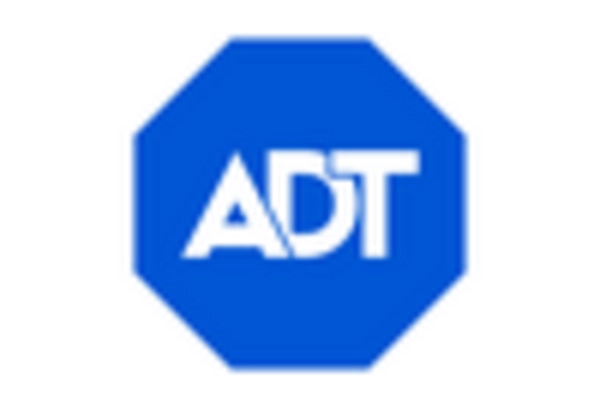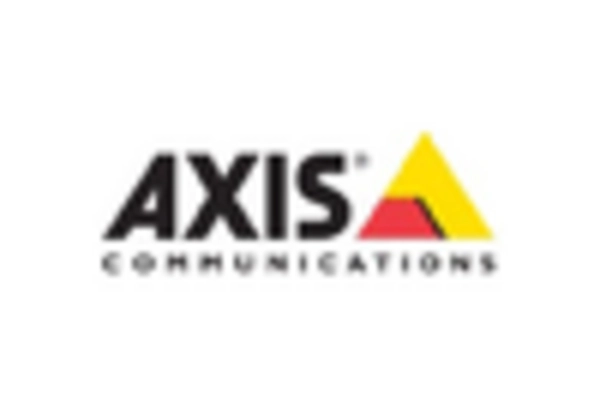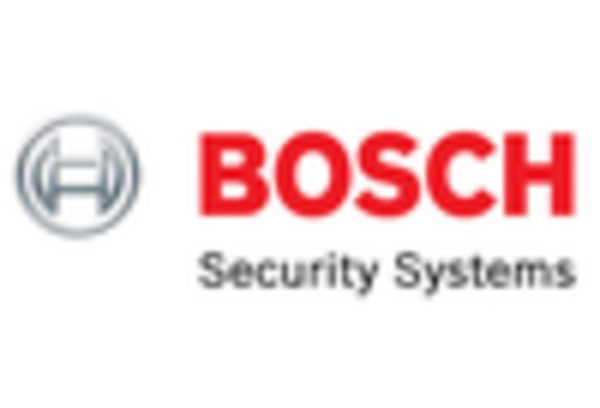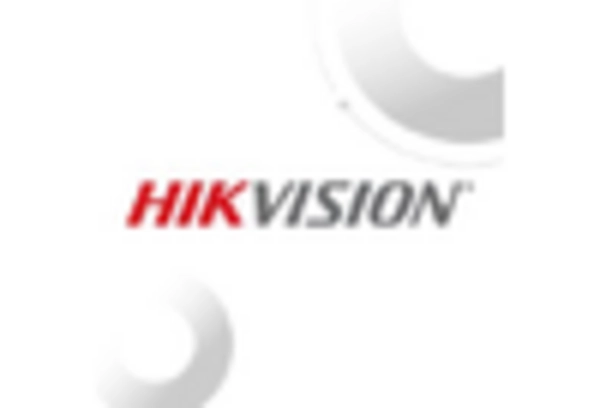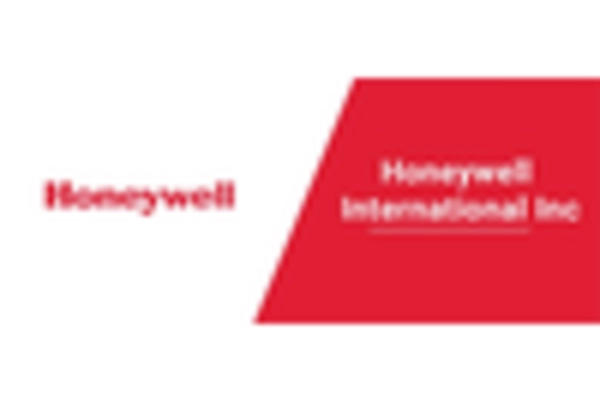Rising Crime Rates
The physical security market in South Korea is experiencing growth due to rising crime rates. Recent statistics indicate that property crimes have increased by approximately 15% over the past year. This increase is prompting businesses and homeowners to invest in security solutions, particularly in urban areas where the demand for surveillance systems and alarm services has surged. As a result, companies in the physical security market are expanding their offerings to include advanced technologies such as video analytics and remote monitoring. The heightened awareness of safety concerns is likely to drive further investments in security infrastructure, thereby enhancing the overall market landscape.
Government Initiatives
Government initiatives aimed at enhancing public safety are playing a pivotal role in shaping the physical security market in South Korea. The government has launched various programs to promote the installation of security systems in public spaces, which has led to increased funding and support for security projects. For instance, the allocation of approximately $200 million for urban safety initiatives has spurred demand for surveillance cameras and access control systems. This proactive approach not only improves community safety but also stimulates growth within the physical security market, as private entities align their strategies with government objectives.
Technological Advancements
Technological advancements are significantly influencing the physical security market in South Korea. The integration of artificial intelligence (AI) and machine learning into security systems is becoming increasingly prevalent. These technologies enable real-time threat detection and response, which is crucial for both residential and commercial sectors. According to recent data, the adoption of AI-driven security solutions is projected to grow by 25% annually. This shift not only enhances the effectiveness of security measures but also reduces operational costs for businesses. As organizations seek to leverage these innovations, the physical security market is likely to witness a transformation in service delivery and product offerings.
Increased Awareness of Security Risks
The growing awareness of security risks among consumers and businesses is driving demand in the physical security market. As incidents of theft, vandalism, and workplace violence become more prevalent, organizations are prioritizing security measures. Surveys indicate that over 60% of businesses in South Korea are planning to increase their security budgets in the coming year. This shift reflects a broader recognition of the importance of safeguarding assets and personnel. Consequently, the physical security market is likely to expand as companies seek comprehensive solutions that address their unique security challenges.
Urbanization and Infrastructure Development
Urbanization and infrastructure development are key factors influencing the physical security market in South Korea. As cities expand and new commercial developments emerge, the need for robust security systems becomes increasingly critical. The construction of smart cities, which integrate advanced security technologies, is expected to drive market growth. Recent reports suggest that investments in urban infrastructure could exceed $50 billion over the next decade. This trend presents opportunities for companies in the physical security market to provide innovative solutions tailored to the evolving needs of urban environments.


